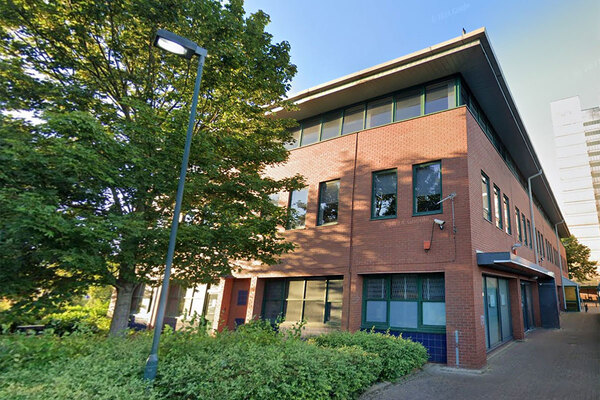You are viewing 1 of your 1 free articles
Complaints and enquiries to ombudsman surge by 38% in last quarter
The number of complaints and enquiries to the Housing Ombudsman about social landlords increased by 38% in the last quarter.
The ombudsman’s latest quarterly data report revealed that it received 11,205 complaints and enquiries between January and March 2023, up from 8,123 in October to December 2022.
The 8,123 in that period was a 24% increase compared to the previous quarter.
The statistics for the latest quarter also show that property condition continues to be the most complained about category, accounting for 68% of all complaints.
The second-highest was complaint handling at 18%, followed by anti-social behaviour (ASB) at 10%.
The ombudsman found maladministration in 64% of determinations, while it made 1,527 orders in the quarter.
Alongside the data, the watchdog has published an insight report focusing on emerging themes and lessons from recurring cases.
For the first time, it provides a viewpoint from its dispute support team, who are the first response to many complaints.
Claims
One of the issues caseworkers are seeing is around legal claims.
In its special report on Rochdale Boroughwide Housing (RBH) following the coroner’s report on the death of two-year-old Awaab Ishak, who died from prolonged exposure to mould, the ombudsman concluded that the landlord “operated within a culture of not necessarily progressing repairs if a resident had made an associated disrepair claim”.
RBH did not do the necessary repairs on Awaab’s home after his family began a disrepair claim.
According to the watchdog’s insight report: “Complaints policies that exclude matters subject to legal proceedings need to be clear that that does not include the pre-action protocol.”
It said the team has also seen a number of approaches to the ombudsman that centre around insurance claims.
“These are usually outside of our jurisdiction, but landlords will still need to consider, even if the issue does not qualify to be recorded as a complaint, whether they have any responsibilities towards actioning the insurance claim,” the report states.
Extensions
It said another trend from the past quarter has been landlords contacting the ombudsman asking for an extension to provide a complaint response, rather than contacting the resident to have that conversation.
“As per the complaint-handling code, if an extension is required, then this should be agreed by both the landlord and resident.
“Landlords also must not delay their complaint response to wait for the completion of a repair, as this could also be delayed or take longer than expected,” according to the report.
Group complaints
When dealing with group complaints, the ombudsman advised landlords to consider what went wrong, how it affected the group and respond to the group complaint, but they should also consider any individual adverse effect and provide tailored responses where appropriate.
The report also includes lessons from formal investigations.
Repairs
One case highlighted was a council failing to do repairs involving a resident who was nearly full term in her pregnancy.
“Within days of moving in, she complained of various repairs not completed and a gas engineer found that the gas supply tap had been left on and was in a dangerous state.
“The repairs took a month to complete,” the watchdog said.
Making a finding of maladministration, the ombudsman concluded that the council had not adhered to its own void lettable standard policy and its inaccurate repairs records “could not be explained”.
“It did not investigate how that had happened or try to prevent a recurrence,” according to the report.
The report advises that thorough inspections of homes must take place before a resident moves in, including ensuring the home adheres to safety regulations.
Repairs records must be kept up to date and monitored to ensure jobs are completed promptly and accurately.
“If something goes wrong, learning debriefs must always take place,” it said.
In another case it praised a housing association, whose policy is to repair before replacing, for how it handled a window replacement.
“Clear following of a policy and keeping a resident well informed about the reasons for the decision, backed up by inspections, is a positive way of managing resident expectations and repairs,” the report states.
Staff behaviour
The ombudsman also praised one landlord for taking reasonable steps to find out what had happened after a resident complained that a member of the staff had been aggressive during a visit to his home.
“The landlord took the resident’s concerns seriously and investigated the matter.
“When there was no further evidence, it communicated appropriately with the resident and fairly recognised it could have done better,” the watchdog said.
ASB and noise
The report states that ASB and noise can be an emotive topic and landlords should have tools available to reduce distress.
One ASB case the ombudsman highlighted involved a landlord missing “several opportunities” to manage the expectations of the resident, who thought his neighbour would be evicted or that he would be rehoused.
In cases related to ASB, it said that communication and expectation management with residents is just as important as addressing the ASB itself.
Complaint handling
The ombudsman said that there should always be appropriate cover when a complaints team member goes on leave to ensure that a resident is not “left in limbo during a potentially very distressing time”.
“We are also clear that complaints should not be handled informally, as this only delays redress for the resident involved and does not allow for learning to take place from that complaint,” it said.
Richard Blakeway, housing ombudsman, said: “Complaints are a mirror of landlord services and can often be the first warning light that a policy or procedure may not be working in practice as it should be.
“This report will help landlords to make improvements and deliver better services for residents.
“Crucially, it includes insights from our case handlers who support earlier resolution while the complaint is still in the landlord’s procedure, bringing fresh insights into cases raised in the last few weeks.”
Mr Blakeway said the organisation continues to experience high demand and a “surge in complaints about disrepair”, as well as upholding more findings.
“So the insights from our investigations – both good and poor handling – should help landlords get to the root causes of complaints,” he said.
Sign up for our asset management newsletter
Already have an account? Click here to manage your newsletters












